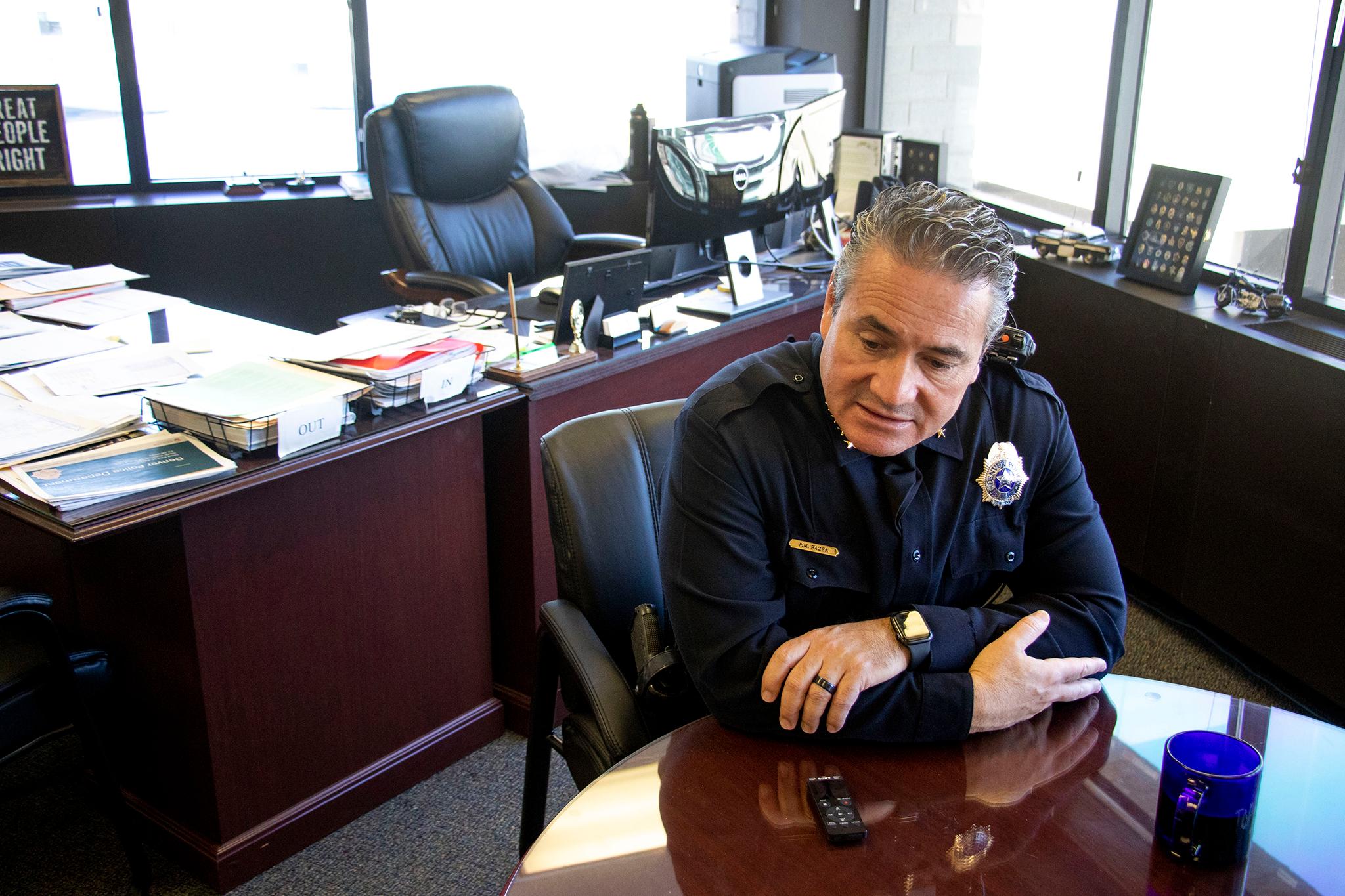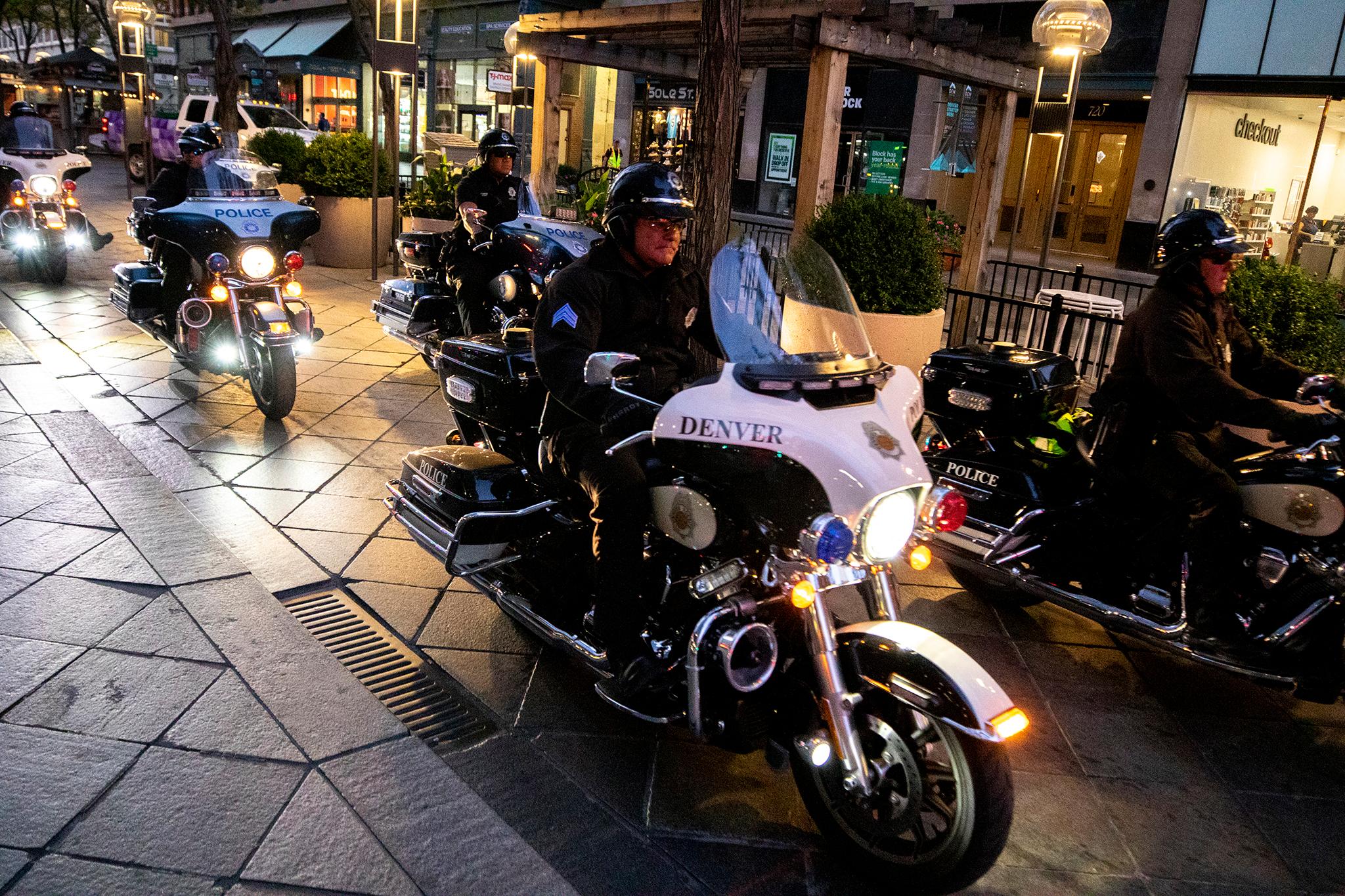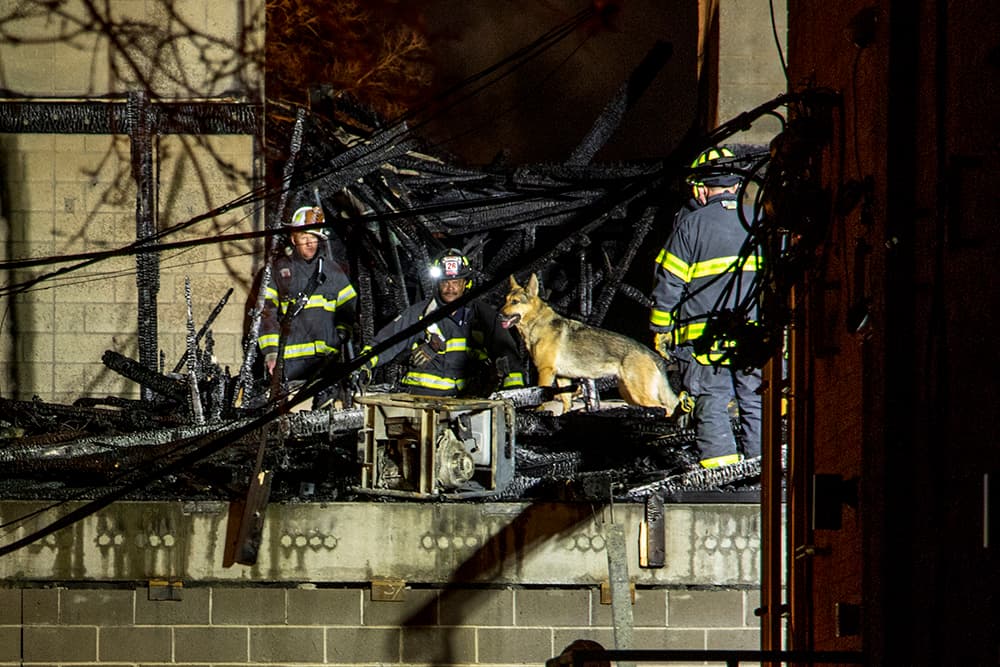Even before the COVID-19 pandemic, emergency service providers were accustomed to working in worst-case scenarios.
Denver Fire Department spokesperson Greg Pixley said their world is built on preparing for the worst while hoping for the best. The current coronavirus outbreak is no different. Pixley noted the department has contingency plans in place -- basically backup plans -- for disaster scenarios, including if a pandemic were to take out personnel.
"We don't want to have to try and figure it out without having thought about it first," Pixley said. "We have those plans, which we have worked out before, before the coronavirus."
Denver Police Chief Paul Pazen said DPD also has contingency plans in place in the event of a department outbreak. While he declined to provide details about how the plans would work, he said they're based on potential staffing reductions of between 10 and 85 percent. (DPD declined a records request from Denverite asking for its contingency plans for staffing during a pandemic, saying such plans contain sensitive details, such as security procedures.)
The police department has about 1,600 sworn staff, including recruits. Some recruits are still completing training online, though some training had to be suspended due to the outbreak.

Pixley said that if the department had symptomatic firefighters or a sudden outbreak among its 1,040 active firefighters, it would move people from others roles or duties to help fill any vacancies on the front lines.
"If worse got to worse, and god forbid it would happen, I could go back, even at 54 years old, I could go back and be a firefighter, and I think I could be a pretty good one," Pixley said.
Brent Stevenson, assistant chief for the Denver Health Paramedic Division, is overseeing the city's paramedics COVID-19 response and preparedness. Denver Health is in charge of the city's paramedic division, which Stevenson said includes about 200 paramedics.
If an outbreak were to happen among EMTs, Stevenson said the paramedic division would pull additional EMTs from the educational department, which is made up of certified paramedics.
Stevenson noted that many paramedics will very likely be exposed to the new coronavirus because they are facing the pandemic on the front lines.
"There's a lot of anxiety and questions about what's going to happen with this," Stevenson said. "I think a lot of paramedics are digging in and are excited for this because we always train for some new emergency pathogen or disease."
The agencies are providing extra protective measures to ensure personnel safety.
Firefighters carry gowns, goggles, gloves and N95 masks in case they need to help someone who is symptomatic. Pixley said this ensemble gives firefighters "a tremendous degree of protection."

Stevenson said each paramedic has access to eye protection, which can be goggles or face shields, as well as surgical masks and a gown.
Pazen said each officer carries protective equipment kits that include an N95 mask, gloves, glasses and decontamination material, anything from anti-bacterial wipes to UV technology that kills bacteria.
The police and fire departments have changed how they take calls due to the outbreak. Pixley said 911 operators ask callers a series of questions to determine whether someone could potentially expose emergency personnel to COVID-19.
On March 13, DPD modified its reporting process to limit person-to-person contact after Mayor Hancock closed all city-owned facilities. Police are now taking reports for some low-level crimes over the phone instead of in-person to reduce their exposure.












